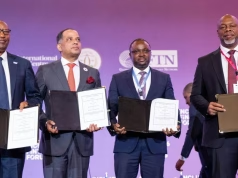The Federal Government’s policy direction to promote value addition in the solid minerals sector has yielded positive results, contributing N1.56 trillion to Nigeria’s Gross Domestic Product (GDP) in the past year. However, the sector’s contribution to overall GDP growth has declined by 16 percent compared to the previous period.
According to the latest GDP report released by the National Bureau of Statistics (NBS), the solid minerals sector, comprising coal mining, metal ore and quarrying, and other minerals sub-activities, contributed 5.60 percent to the overall GDP in the second quarter of 2024. While this represents an increase from previous quarters, it remains a relatively small contributor to the overall economic growth, which was driven primarily by the services sector.
The Ministry of Solid Minerals Development, led by Dr. Dele Alake, has implemented a seven-point agenda aimed at increasing foreign direct investment in the sector and enhancing its revenue contribution to the Nigerian economy. This agenda includes establishing the Nigerian Solid Minerals Corporation, forming joint ventures with mining multinationals, compiling big data on priority minerals, creating a Mines Surveillance Task Force, reviewing mining licenses, and setting up Mineral Processing Centers.
A key focus of the ministry is to promote value addition in the mining sector. The government has mandated that investors must demonstrate a commitment to value addition, such as processing and refining minerals within Nigeria, before being granted mining licenses. This policy aims to increase the economic benefits of mining for local communities and reduce revenue losses from exporting raw minerals.
While the government’s value addition policy has been well-received by some, there have also been criticisms. Some stakeholders argue that the policy lacks specific guidelines and can hinder mineral production. They emphasize the need for clear regulations and support for the establishment of mineral processing centers.
The NBS data shows that the export of mineral raw materials has increased, but it is unclear whether these materials are being exported in their raw form or with added value. This has raised concerns among stakeholders who are seeking greater clarity regarding the value addition policy.
Despite these challenges, the solid minerals sector has the potential to make a significant contribution to Nigeria’s economy. By implementing effective policies and investing in infrastructure, the government can create a more conducive environment for the growth and development of this sector.

























